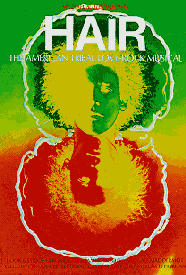|
The Court's first explicit statement of the ldesignated public forum doctrine came in Southeastern Promotions v Conrad. Southeastern Promotions sought permission to use Chattanooga, Tennessee's municipal auditorium for performances of the musical "Hair." Although the auditorium had been rented for a wide variety of expressive activities prior to Southeastern's application, Chattanooga city officials refused Southeastern's request, citing Hair's nudity, tacit approval for drug use, sexual themes, and bad language. The Court found the municipal auditorium to be a designated public forum, and the city's refusal to permit use of its auditorium to be an unconstitutional prior restraint. The main difference between traditional and limited public forum, for First Amendment purposes, is that the government, in dedicating the forum for expressive purposes--that is, in defining the forum--may adopt reasonable limitations on who may use the forum. (Also, government cannot ban expression completely in the traditional public forum, whereas it is under no First Amendment obligation to have opened a limited forum.) For example, the UMKC student center meeting rooms found to be a limited public forum in Widmar v Vincent could be restricted in their use to students, excluding members of the general public. It also would be permissible to restrict use of the meeting rooms to only academic programming. But it is impermissible, the Court said, for the university to allow students to meet for academic, social, or political purposes, but not for religious purposes. Rosenberger
v
University
of Virginia demonstrates that a limited
public forum need not be
a physical place. In Rosenberger,
the Court found that
Virginia
had created a limited public forum when it
established a fund that
would
cover the cost of publications by eligible student
groups. Once
having
created such a forum (which, of course, it was
under no obligation to
do),
Virginia could not refuse funding to a student
organization because of
the overtly religious nature of its publication. In Christian Legal
Society v Martinez
(2010), the Court considered a decision of the
Hastings Law School (a
public law school in California) to deny the
benefits that come from
being a registered student organization (including
funding, use of
student bulletin boards, etc) to the school's
chapter of the Christian
Legal Society because it denied membership to
students who "engage in
unrepentant homosexual conduct" or do not share
the religious
convictions described in the organization's
Statement of Faith.
By a 5 to 4 vote, the Court held that Hastings
could, consistent with
the First Amendment, enforce a policy that
registered student
organizations admit "all comers." Such a
policy, the Court
decided, violates neither principles of
limited-forum analysis or the
associational rights of the CLS. |
Southeastern Promotions v Conrad (1975) Widmar v Vincent (1981) Rosenberger v Univ. of Virginia (1995) Christian Legal Society v Martinez (2010)
2. Does the Court in Southeastern Productions leave the door open for prosecution of the actors of Hair for violating, for example, nudity laws? 3. Could UMKC (see Widmar v Vincent) have restricted use of its student center to only student groups with an academic mission such as chess clubs, drama clubs, Spanish clubs, etc.? 4. Are there sound educational or policy reasons for a university not funding (with state dollars) student publications that promote a specific religious viewpoint? After Rosenberger, what options are open to universities that wish to provide financial support to some (but not all) student publications? 5. Was CLS v Martinez rightly decided? What should happen if a group of atheists try to take over the CLS chapter? Must the Law School Liberals club let conservatives vie for officeholder positions? On the other hand, must a law school extend organizational benefits to a Male Superiority group that excludes female students (Justice Ginsburg's example)? |

